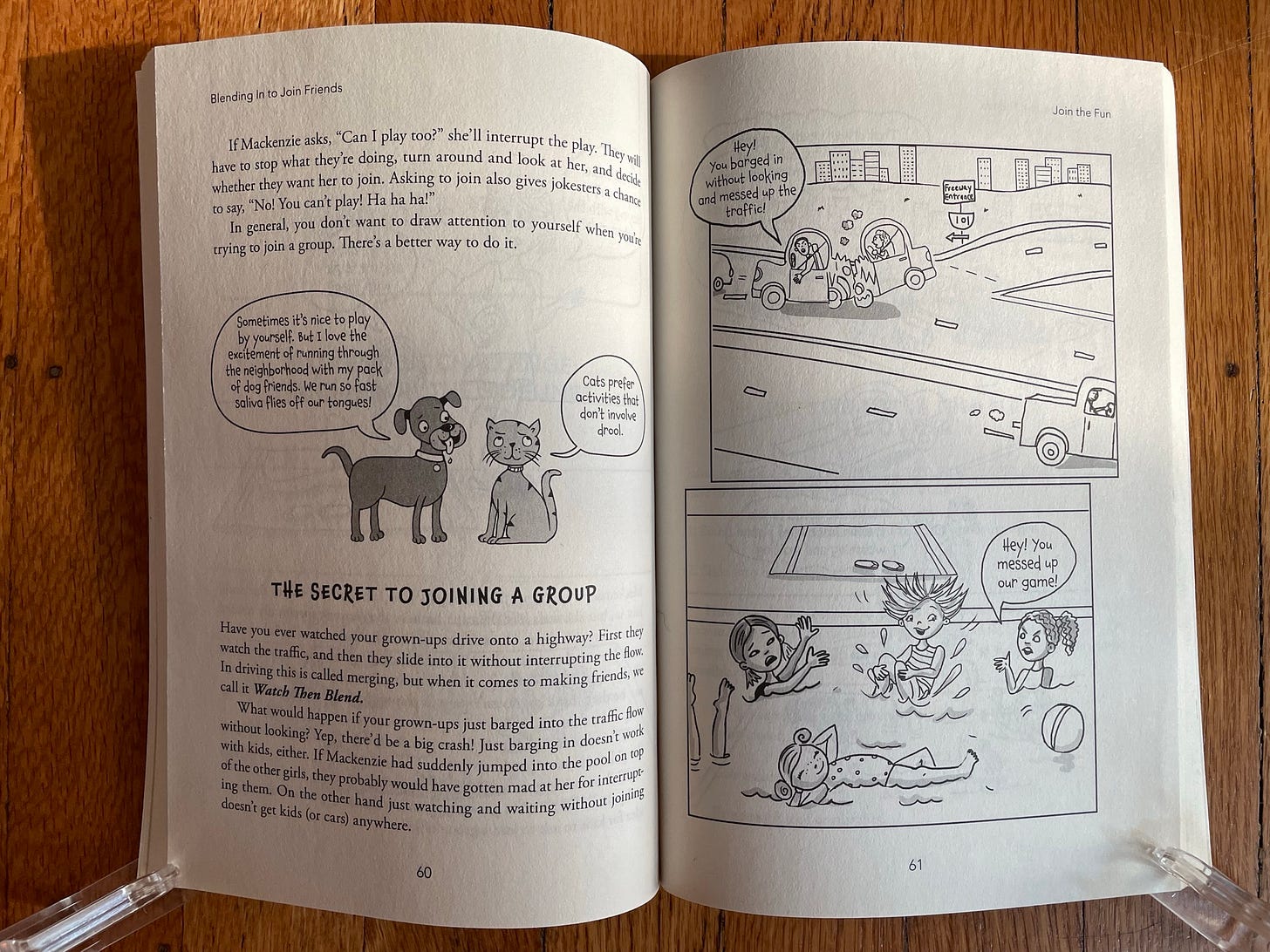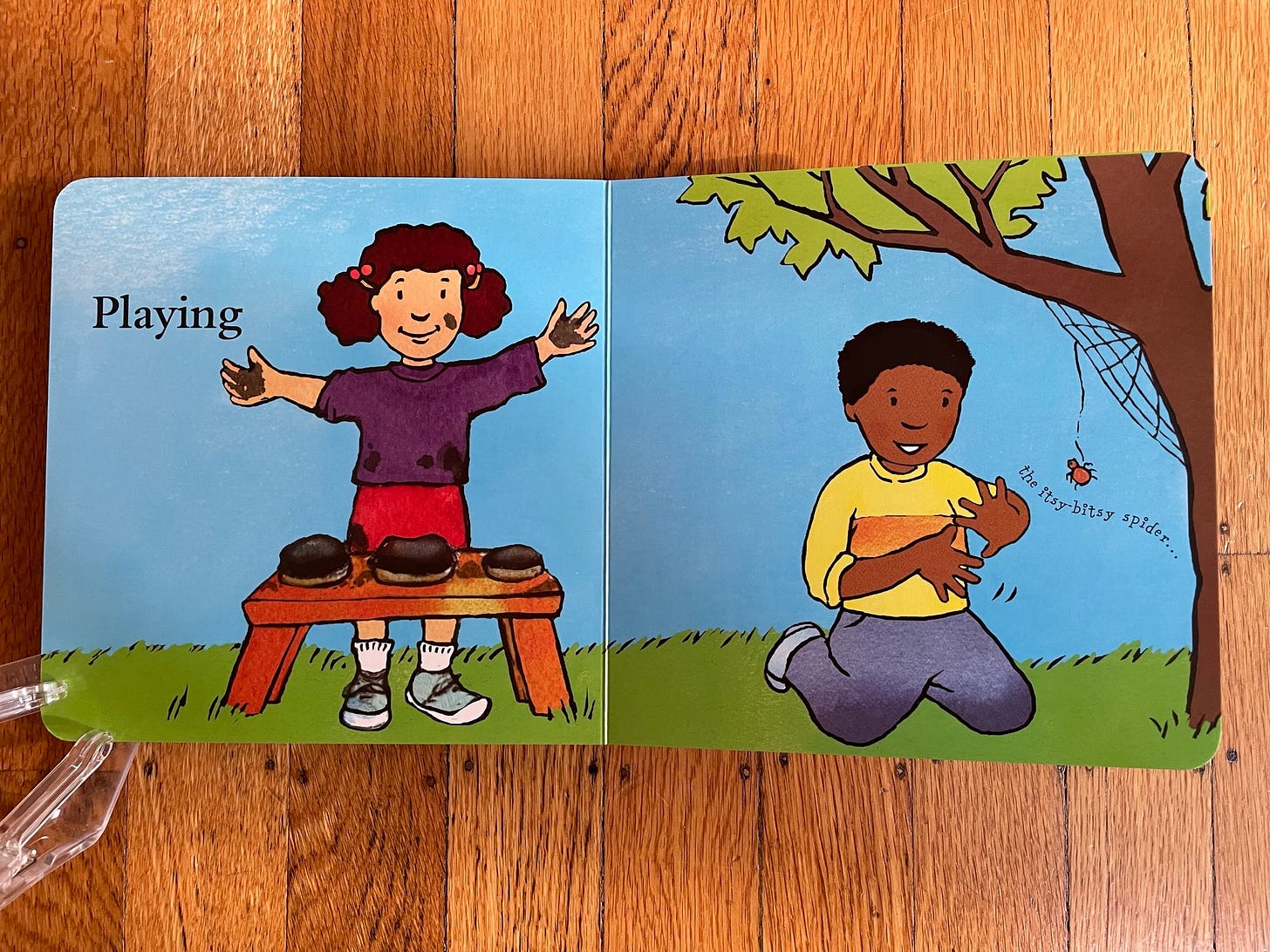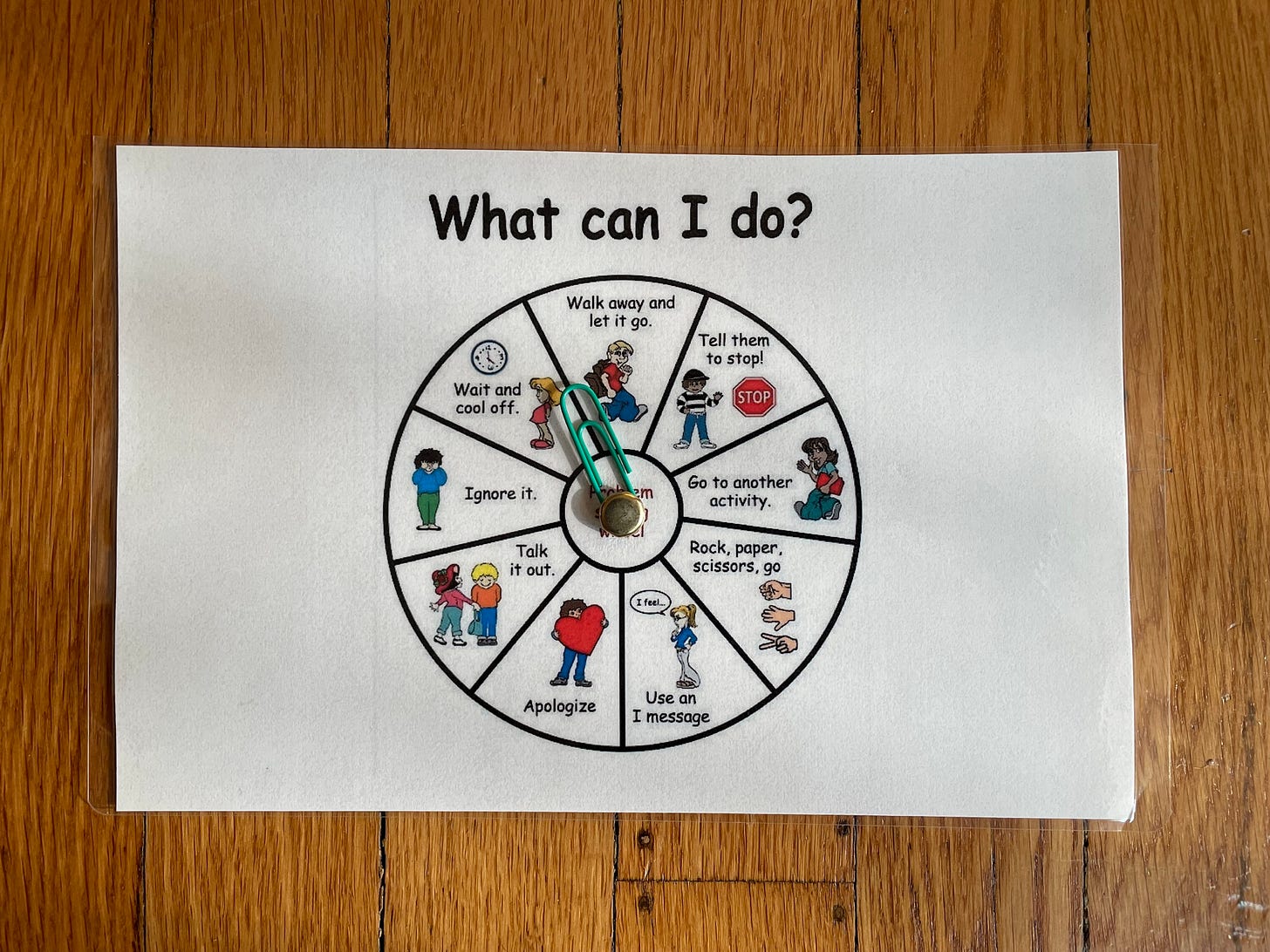Getting Along
Growing Friendships; Hands Are Not For Hitting; Sometimes I'm Bombaloo; Mop Rides the Waves of Life
New school year; big feels. Our youngest is now in K at his older sibling’s school, so we’re navigating many tricky dynamics. Helping Younger get acclimated, saying goodbye at the gate so Elder isn’t embarrassed, learning the vibe and routines of new teachers, catching up with old friends, making entirely new friends, straddling different homework expectations. And everyone waking up earlier. I feel lucky not worrying too much about summer learning loss, but I am mindful about the emotional impacts of transitions like this. And for sure the kids are still working through developmental gaps caused or exacerbated by the pandemic. With all of this in mind, here are a few resources to help the kids reacclimate to school life in close proximity with others.
Growing Friendships helps elementary-aged kids think explicitly about how to approach their peers in the project of getting to know each other, spend time together, become friends, solve problems, and share space. I like this book because it acknowledges how much work all of this stuff takes for everyone, and it offers specific, practical advice for navigating a wide range of social interactions. It speaks directly to kids, and our eldest has mostly read it on their own, but I’ve enjoyed reading it as well. The short chapters offer a mix of narrative and illustrations with speech bubbles.
Growing Friendships. 2017. Eileen Kennedy-Moore, Christine McLaughlin. Target age: Gr2-6 [libraries, bookstores, trailer, author’s website].
Hands are Not for Hitting is aimed at the very youngest preK kids and toddlers with the one, simple mission stated in its title. The first edition of the book is basically a short list of wonderful things we can do with our hands, with a couple of reminders throughout that Hands Are NOT For Hitting. It reads a bit like a mantra, and I imagine many adults end up using the phrase that way. “Now remember, hands are not for hitting. What CAN you do with your hands??” A revised and updated version of the book from 2009 adds A LOT, including discussion of why hitting isn’t ok, why someone might feel like hitting, and what kids can do if they feel like hitting. I’ve only just learned about this updated version, but I plan to buy it ASAP even though our youngest is already nearly 6.
Hands are Not for Hitting. 2009, (photos above are from the first edition, 2002). Martine Agassi, Marieka Heinlen. Target age: toddler-K [libraries, bookstores, read-aloud]
In our experience so far, learning this has been a significant project for one of our kids, including parent-teacher meetings, OT support, and various behavioral interventions. In case you might be looking for additional support around this issue, I strongly recommend the resources pages and many great articles at ChildMind.org, especially the Managing Big Emotions section. Also, a very simple tool to balance this book is a “What can I do?” spinner, or a list of alternatives, cool-down techniques etc that you might help your kiddo create.
We keep this one on the fridge. You can find this exact wheel, here, but you can also try searching for “coping strategies” or “calm down wheel” for similar tools.
In this same vein, I also want to briefly recommend two fiction books that do a great job of validating feelings of frustration. It’s super important for kids to understand that feeling angry or frustrated is totally normal and that we all experience the whole range of emotions, many of them very big indeed. Both of the read-alouds linked below are EXCELLENT.
Sometimes I’m Bombaloo. 2002. Rachel Vail, Yumi Heo. Target age: toddler-preK [libraries, bookstores, read-aloud by a school psychologist]
Mop Rides the Waves of Life. 2021. Jaimal Yogis, Matt Allen. Target age: preK-Gr2 [libraries, bookstores, author read-aloud]










